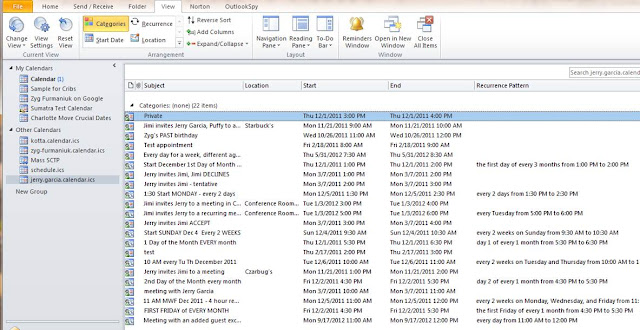Remember to look at calendars as part of the legal discovery process.
Last year we migrated a university (sorry, I can't give out the name here). During the migration, the CIO wondered why legal discovery solutions only focus on email (because it’s the only data that can be easily read, and there is a lot of it).
He saw their calendar data in a database and mentioned they might need to revisit their historic calendaring data (via Meeting Maker) for legal discovery or forensic analysis.
We’re calendaring guys. Reading calendar data is what we do, we said, so let us know if you need it.
Last month they asked if we could extract calendar items for a set of users. The caveat: they wanted the output to contain all meetings, agendas, appointments, along with the names of all people they met with in an easy to read format.
The "easy to read format" was the really hard part.
However, we believe in the old virtues of hard work and entrepreneurial solutions. We also noticed that since the Microsoft Exchange base is growing and the Meeting Maker base continues to contract that we'd rather solve this on Exchange.
We had their Meeting Maker data in an Access database. We could have written some code to expand the calendar data. But this method seemed pointless since Sumatra’s insertion into Exchange does most of that work already. So our solution was to take advantage of Exchange - insert their data into our test lab, and then create a tool to read the calendar data directly from Exchange.
The report contains ALL calendar entries (meetings and appointments), showing with organizer, subject, date, attendees, including the agenda.
For current Sumatra clients who can’t wait to try this, here’s the command syntax for a report of Bela Bartok’s calendar in 2008 (it would all go on one command line but we format here for clarity):
suExchange2007.exe
/usersrc:alias
/user:bela_bartok
/cmd:report_all
/dtstart:”1/1/2008”
/dtend:”12/31/2008”
Note: If you do not want to see the agenda, you can use the
/cmd:report switch. It’s much faster!


